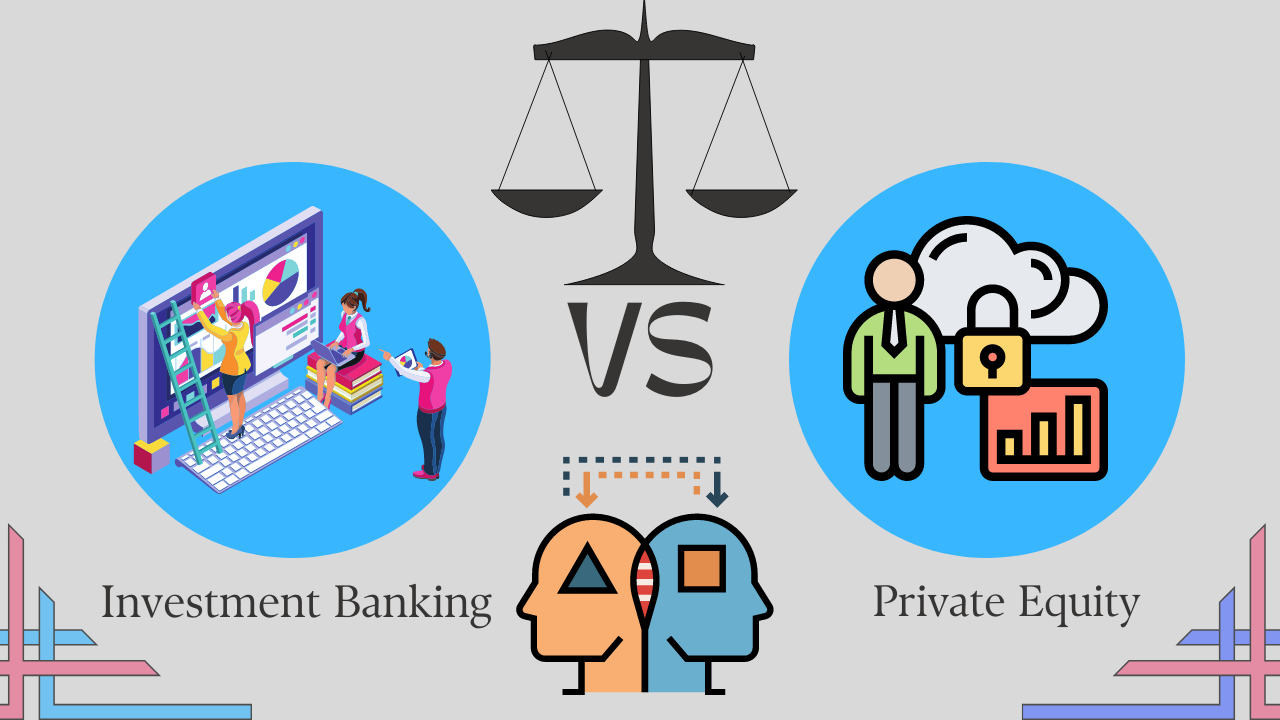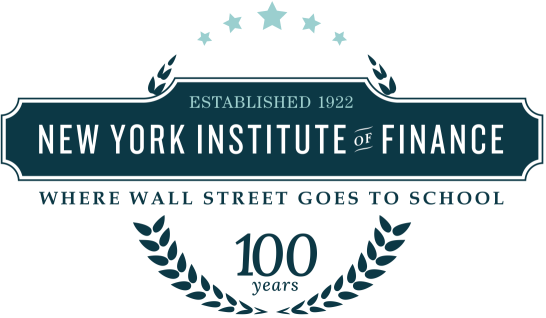Investment Banking Vs Private Equity

We are living in an ever-changing world of trends, technology, and other aspects. The chase for finding new ways and grabbing the most potential opportunities for earning money is increasing day by day, and more and more people are becoming interested in the idea of investing.
Two of the most famous and renowned investment opportunities that most investors are interested in whether they are new or experienced in the investment market are Investment Banking and Private equity. Most people think that these two are somewhat similar but the reality is that they are two different investment opportunities.
When you need to invest a bigger portion of your finance, then you need to understand a lot of important things so that you can make sound and informed decisions regarding your investments.
In this article, we will be evaluating the differences between investment banking and private equity to gain knowledge and evaluate which is the best investment opportunity for you, and then you may decide which one you want to choose.
You can checkout NYIF’s Investment Banking courses here.
What is Investment Banking?

Investment banking is a procedure of gaining capital or arranging mergers and acquisitions. Investment banking also known as corporate finance is the part of an investment bank that advises companies and governments on how to raise money, how to merge or take over companies, and also how to restructure their business. To be highly effective and highly efficient, there are some key areas within the investment banking division.
What are Mergers and Acquisitions?

A merger is when two companies or businesses come together and an acquisition is when a bigger company takes over a smaller company.
Equity and Debt Capital Markets?
The Equity capital markets focus on advising companies and businesses and governments on raising cash tools or raising money. It focuses on raising money through equity whilst debt focuses on raising money through debt. For instance, Facebook wanted to raise money through equity and so, an investment bank made it possible for them.
However, when it comes to the debt capital market, think of a mortgage. You are borrowing a loan and the bank makes money from your interest payments. This is the same in debt capital markets except for the clients are massive corporations and the interest payments are in millions.
Click here to view NYIF’s Capital Market Courses.
● Leverage Finance - This is just similar to debt capital markets, but a riskier one. When we talk about debt capital markets, we are thinking about safe loans. However, with leverage finance, raising capital is with debt, but it involves risk.
● Restructuring - Here, bankers scrutinize and analyze the structure of the business. They look at the debt to equity ratio, how much debt the business has, and how much equity the business has in its structure. So, bankers in the restructuring team look at all this and then figure out to construct the best structure for that company.
What is Private Equity

Private equity consists of money being invested into private companies. They take money from other companies and invest it in buying and selling businesses after raising a certain amount. So, if a fund is raising 10 million, 100 million, or even a billion pounds, once they raise that money, they close it. This allows new investors to put their money into the fund.
This fund might be specifically used for investments in the technology sector or the healthcare industry. Generally, when you think about private equity, you need to think about long-term investing. If you want to work in private equity, the easiest route is to work in an investment bank. You will have a healthy lifestyle and proper balance in life too.
Careers in Private Equity
As compared to investment banking, private equity is something that offers you a much better work-life balance. There is more hard work involved in private equity, but the returns are much more promising than investment banking. Moreover, you might work around weekends and private equity firms are generally more laid back and casual than a regular organization.
Private Equity Salaries
The most lucrative thing about private equity is that as an associate, you will have much higher compensation than you would get in investment banking. As compared to the $130-150k that you can earn in your first year as an investment banking analyst, you can expect to earn anywhere between $100k and $220k as a first-year associate.
Check out our Equity Portfolio Management Course here.
There are three key types of private equity;
● Venture Capital - Venture capital mostly has to do with financing early-stage startups. Investors involved in a VC offer seed funding in exchange for a share of the company. Generally, venture capital investment is riskier than other types.
● Growth Equity - Growth equity deals with investing in an established and popular organization that is looking for additional funding to grow itself.
● Buyouts - Buyouts refer to the instance where a public company is being bought by a privacy equity firm. This type of investment is the most popular among the various private equity spaces.
Overall if we see then Investment banking is more towards having a luxury lifestyle and being a center of attraction for everyone. However, private equity is more in-house and more about analysis. So this is up to you whichever you want to choose. We hope you have brief know-how about the difference between investment banking and private equity.
About the New York Institute of Finance (www.nyif.com)
The New York Institute of Finance was formed more than 100 years ago by the New York Stock Exchange and is a global leader in delivering education and training for the financial services industry. The Institute offers a vast array of courses ranging from introductory to advanced, as well as several professional designations that build careers through expertise. Each year the Institute delivers training to more than 50,000 individuals in over 125 countries.
For more information about NYIF, visit nyif.com.
Contacts
New York Institute of Finance
+1 347-842-2501
customerservice@nyif.com
SOURCE New York Institute of Finance
Related Links
https://www.nyif.com
